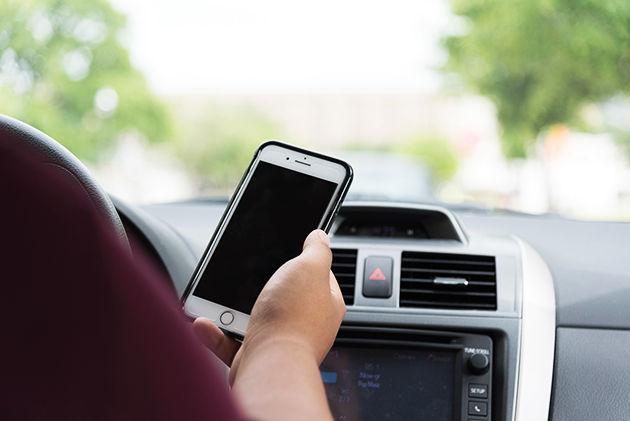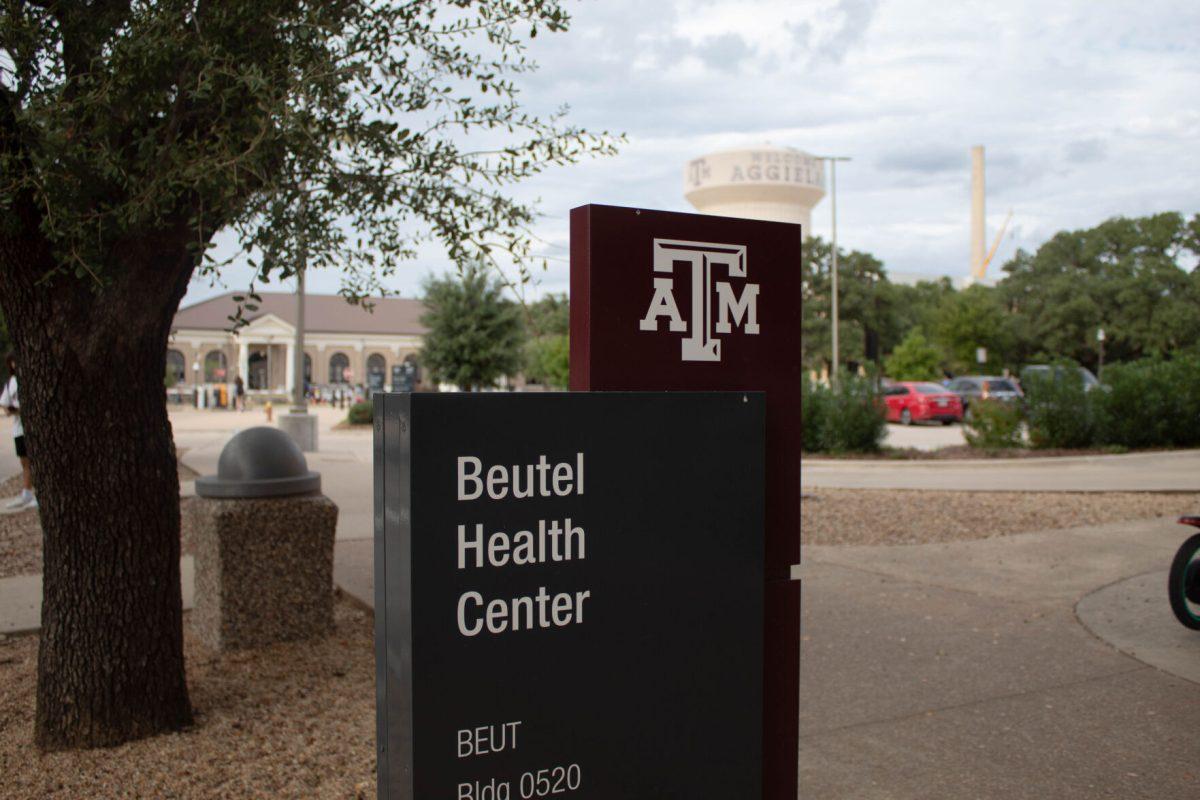Five months after the city ordinance was established, the Mobile Device Driving ordinance has led to a decrease in the use of mobile devices while driving, the College Station Police Department said.
The “Hands Free” law went into effect Nov. 9, 2016 and prohibits the use of all hand-held wireless communication devices while operating a motor vehicle or bicycle. Drivers in violation of this ordinance can receive a $25 to $200 fine. According to the Mobile Driving Ordinance, drivers can still use a wireless communication device in their vehicles if it is connected to bluetooth or the vehicle is lawfully and completely stopped.
Lieutenant Steve Brock with the College Station Police Department said because this law was recently put into effect, there is no real evidence as to if this ordinance has been successful, but officers have observed some improvements when it comes to citizens using their devices while driving.
“Regarding just the total number of accidents is not going to be the determining factor of whether or not this ordinance is successful,” Brock said. “But on the flipside of that we have noticed a decrease in observance of people using their cell phones while driving … As of [April 4], we have written 269 warnings, and 89 citations.”
Brock said officers look for drivers using a mobile device and try to use the best judgement possible when enforcing the ordinance.
“It’s a part of our traffic duty in addition to looking for speeders, people running red lights or driving dangerously to look for people using a device while driving,” Brock said. “A lot of times when we do pull over a vehicle, it may be because they are using a device while they are driving and there are simply times when we’re driving down the road and we see somebody on the phone … In this case the officer, to his discretion, will either write a citation or a warning and we’re looking for those obvious violations.”
Although the city of College Station has not had many major accidents as a result of using a mobile device, Brock said city leaders did not want to wait for something tragic to happen before taking preventative measures first.
“Just two weeks ago, there was a gentleman in Texas who ran head on into a church bus and killed 14 people, and he admitted to texting,” Brock said. “Locally, we had a fatally a couple of years ago where a young lady ran into a jogger on Highway 30 and she was using a communication device right before she struck that person … We don’t want anymore of those accidents.”
With all of the technology available in motor vehicles today, Brock said he feels there should be a zero tolerance policy when it comes to using a communication device while driving.
“There’s not a good excuse for holding a phone when we have all of those resources,” Brock said. “You can connect to bluetooth or put it on an audible. There’s no text, phone call or email that is more important the your safety and the safety of the people around you.”
The Hands Free law has been in effect since the beginning of the semester, but some students like management senior Kendal Gallimore confess that his attachment to his phone could become a problem.
“I’m so used to texting or playing music off my phone while driving it’s just so second nature to me and it’s hard to stop,” Gallimore said. “I take the matter seriously; I just don’t know what it will take for me stop. I’m such a connected person and it’s hard to put my phone down.”
Poultry science junior Katie Blakeley is aware of the Hands Free law, and said she practiced hands-free driving way before the ordinance in College Station was passed.
“I almost never text and drive because it’s unsafe,” Blakeley said. “Texting is just a convenient form of communication and it’s not worth my life or anyone else. This Hands Free law has the potential to save lives, but the law is only as good as the enforcement that goes along with it, so as long as local PD stay on top of it I think we’ll see a good change.”
Management graduate student Sneh Diwan said she is very pleased that there is a law banning the use of phones while driving. She said this issue has affected her personally.
“It’s not safe at all. I have been hit by someone who was texting and driving … I don’t know what they were thinking,” Diwan said. “This happened back in India … I was just walking down the road and there was someone on the phone and they just hit me. I had a hemorrhage in my brain and it awful, so I feel really strong about this and I don’t use my phone while driving at all.”
Chemical engineering junior Justin Tran also admits he still uses his phone while driving and is lucky he has not gotten in trouble for it.
“I still use my phone, mainly during long traffic jams, especially after my classes,” Tran said. “I usually look at my rearview mirror to make sure there isn’t a cop behind me while I do it. I haven’t gotten any tickets yet so that’s good.”










